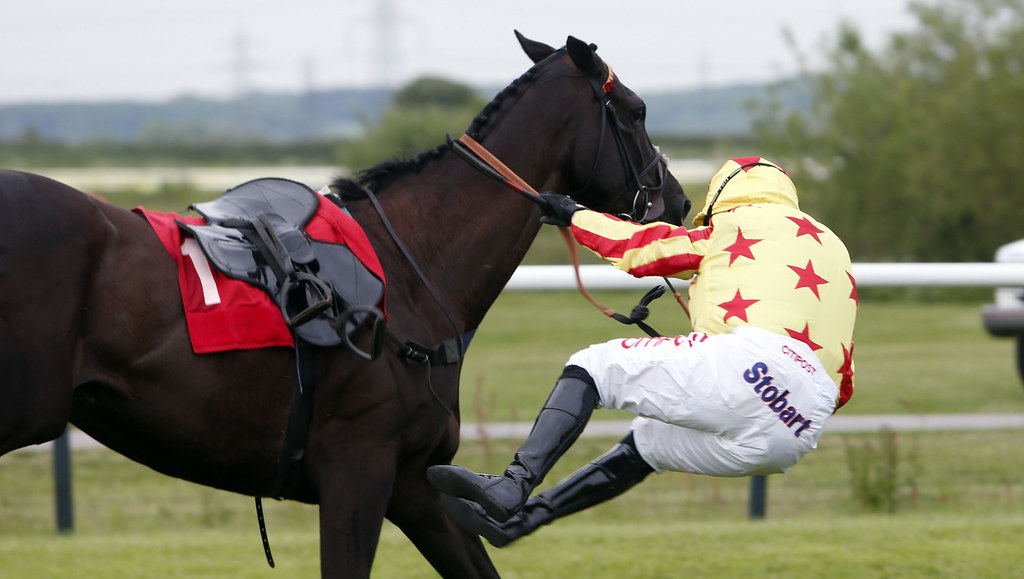Spinal injuries will be the focus of a new study announced this week between the University’s Department for Health and the British Horseracing Authority.
Along with project partners at the University of Sydney and University College Dublin, our team will use a digital race archive created by the BHA to map and digitally re-construct how jockeys fall in more detail.
The British Horseracing Authority (BHA) has announced details of how its digital archive of previous races will assist with these complementary projects. It is hoped that the various projects will give a greater understanding of how falls can impact on concussion and spinal injury.
Spinal injury prevention project
Specifically, our health researchers will use the BHA race archive to digitally map and reconstruct how jockeys fall, to ascertain if there are links between certain types of falls and increased chances of spinal injury.
The work builds on our scrum research for in rugby union, which led to the rules around scrummaging being changed to give greater protection to players. This work was also the feature of this week’s UUK #MadeAtUni campaign.
Professor Keith Stokes, who will lead the project, explained: “Spinal injuries can have a dramatic impact on peoples’ lives, and using the digital archive to inform strategies that have the potential reduce the risk of these injuries is extremely valuable.”
Dr Dario Cazzola also involved in the project from our Department for Health added: "The understanding of the mechanisms of spinal injuries is key to inform the design of interventions that can reduce such a burden. The use of advanced biomechanical methods, such as musculoskeletal modelling and computer simulations, will allow us to estimate the internal forces experienced by jockeys during a fall and explore solutions to minimise injury occurrence."
Supporting rider wellbeing
Dr Jerry Hill, Chief Medical Adviser at the BHA, said: “We’re extremely pleased that the digital race archive can be used to assist a number of fascinating and potentially significant research projects to improve the wellbeing of riders.
“The universities involved will now be able to map and digitally re-construct falls in much greater detail enabling calculation of the forces involved and the effect of altering certain parameters. The knowledge gained from these projects could have a positive impact on the safety all those who ride horses, thoroughbred or otherwise.”
Mick Fitzgerald, Grand National and Gold Cup winning jockey, said: “Being a jockey can be the greatest feeling in the world, but there is always the threat of an injury and it was the aftermath of a fall which ultimately ended my career. Anything that can be done to make riding safer has to be encouraged and it will be interesting where the results of this research will lead.”
As part of the wider project, researchers at the University of Sydney will focus on fall safety research whilst colleagues at the University College Dublin will look at concussion, completing an ongoing helmet bounty scheme run in partnership with the British Equestrian Trade Association. This scheme allows riders across equine disciplines who are diagnosed with concussion following a fall to donate their used helmet for research in return for a voucher to purchase a new helmet.

